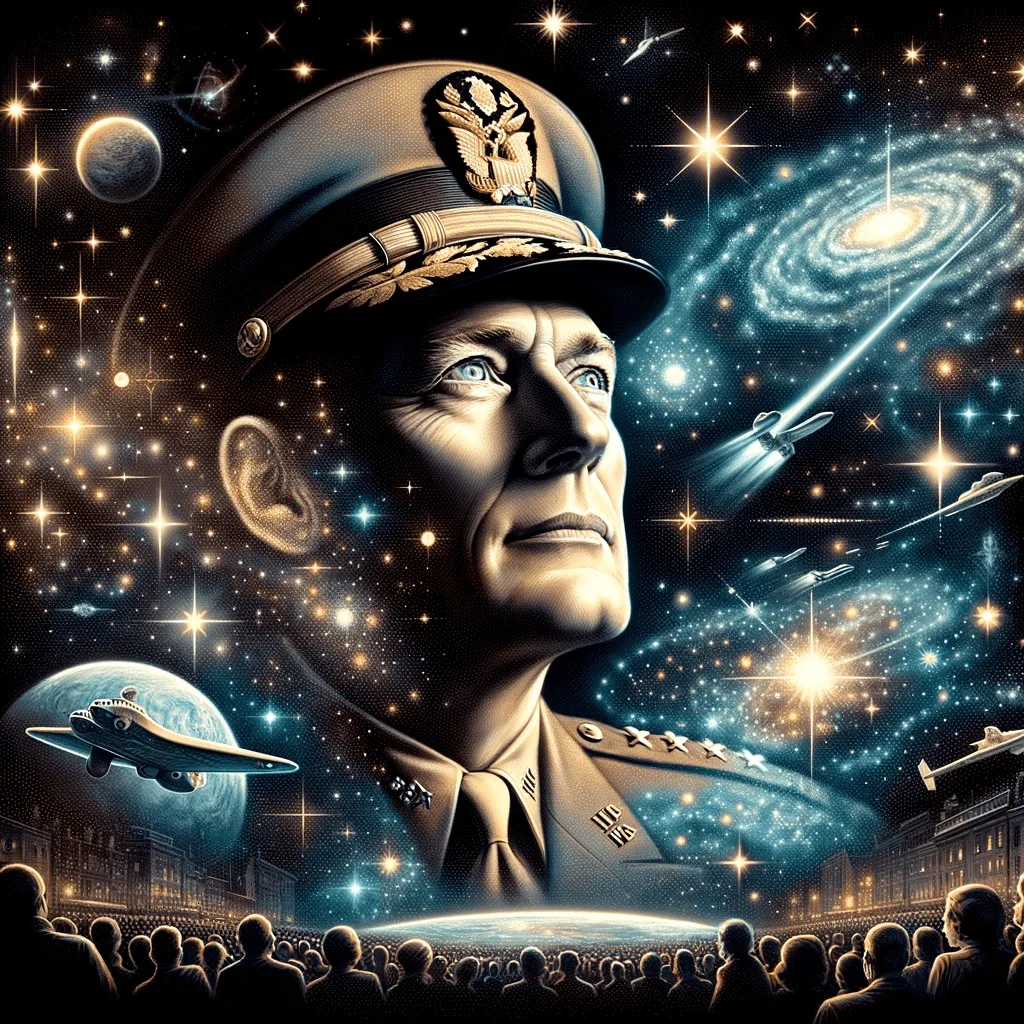General Douglas MacArthur

General Douglas MacArthur is one of the most prominent figures in American military history, known for his leadership roles during World War II and the Korean War. Born on January 26, 1880, in Little Rock, Arkansas, MacArthur came from a military family; his father, Arthur MacArthur Jr., was a U.S. Army general who received the Medal of Honor for his actions in the Civil War.
MacArthur received his early education at a variety of army posts due to his father’s assignments. In 1899, he entered the United States Military Academy at West Point, where he excelled acadically and graduated first in his class in 1903. His time at West Point set the stage for his distinguished military career.
MacArthur spent more than 50 years in the U.S. Army, serving in three major military conflicts (World War I, World War II, and the Korean War) and rising to the rank of five-star general. He is particularly noted for his leadership in the Pacific Theater during World War II. After the war, he served as the Supreme Commander for the Allied Powers (SCAP) in Japan, overseeing the country’s reconstruction and democratization. MacArthur’s last military assignment was commanding United Nations forces during the Korean War, but he was relieved of his command by President Truman in 1951 due to disagreements over strategy.
MacArthur’s connection to unidentified flying objects (UFOs) and unidentified aerial phenomena (UAP) primarily arises from comments he made later in life about the potential future of warfare. In a 1955 speech at West Point, MacArthur spoke about “the ultimate conflict between a united human race and the sinister forces of some other planetary galaxy.”
- MacArthur was one of only five men ever to rise to the rank of General of the Army in the U.S. military (Source: U.S. Army Center of Military History).
- He was nominated for the Medal of Honor three times and received it once for his leadership during the defense of the Philippines in 1942 (Source: Congressional Medal of Honor Society).
- MacArthur was instrumental in drafting Japan’s post-war constitution, which has sometimes been called the “MacArthur Constitution” (Source: Library of Congress).
Many books have been written about MacArthur. Notable examples include “American Caesar: Douglas MacArthur 1880–1964” by William Manchester and “The General vs. the President: MacArthur and Truman at the Brink of Nuclear War” by H.W. Brands.
General Douglas MacArthur gave a speech at West Point in 1955, during which he made some remarks that could be interpreted as a reference to potential threats from outer space.
Here is the relevant portion of his speech:
“We deal now not with things of this world alone, but with the illimitable distances and as yet unfathomed mysteries of the universe. We are reaching out for a new and boundless frontier. We speak in strange terms: of harnessing the cosmic energy; of making winds and tides work for us; of creating unheard synthetic materials to supplement or even replace our old standard basics; of purifying sea water for our drink; of mining ocean floors for new fields of wealth and food; of disease preventatives to expand life into the hundred of years; of controlling the weather for a more equitable distribution of heat and cold, of rain and shine; of space ships to the moon; of the primary target in war, no longer limited to the armed forces of an enemy, but instead to include his civil populations; of ultimate conflict between a united human race and the sinister forces of some other planetary galaxy; of such dreams and fantasies as to make life the most exciting of all time.”
General Douglas MacArthur was a highly influential military leader who left a significant impact on American military history. His accomplishments extended beyond his strategic military successes, playing an instrumental role in shaping Japan’s post-war society and government. Yet, his career was not without controversy, including his public disagreement with President Truman’s Korean War policy that resulted in his dismissal.
The very mention of potential interplanetary conflict by such a high-ranking military official has fueled decades of speculation and interpretation.

